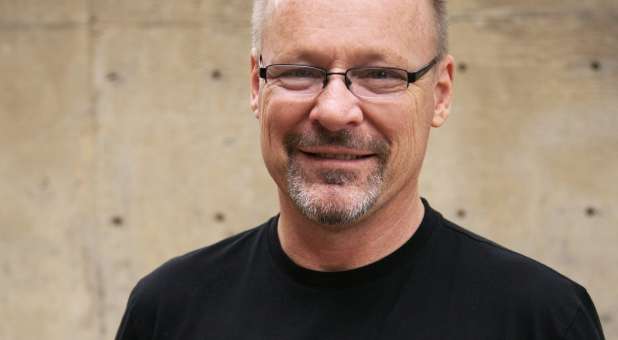In the heart of Lima, Peru is a growing light for Jesus. With hundreds of small groups and several satellite campuses, Camino de Vida church is reaching the lost with the Good News of Jesus Christ. CDV is extraordinarily creative and uses this creativity to evangelize, disciple and meet real life needs all over the city. Thousands call CDV their home church, but the influence and reach of this church and its leadership does not stop there.
Pastor Robert Barriger is the lead pastor of Camino de Vida. And while he is the shepherd of this growing flock, one must first understand that before he was a pastor, he was a missionary. And in his eyes, he is still a missionary. Barriger came to Peru as a missionary about 30 years ago, and missions is still at the heart of who he is and what he does.
In a recent interview on Missions in the Modern Day on the Charisma Podcast Network with Modern Day Missions director Marvin Slaton, Barriger gave a plethora of knowledge and wisdom about the ever-changing world of missions.
What Concerns You About Missions?
“There is less interest in missions than before. The push seems like it’s gone. If there was ever a time that we need more missionaries, it’s now.” The Southern Baptists used to have the largest missionary agency in the United States. Today, the Southern Baptists have 5,000 full-time missionaries, but the Mormons have 75,000. The question is: Are you reaching the world?”
On How Missions Has Changed
The modern missionary.
“The modern missionary is not out in the bushes but found in urban areas. People are in the cities, and that’s what we are here for, people.”
The call to missions is not cheap.
“There is also the concept that a lot of churches have in that they think that missions should be cheap. Missions is not cheap, it is very expensive. It will cost you everything. It will cost missionaries their youth and even their lives at times. We shouldn’t do missions based on if it’s expensive or not. Missions is a sacrifice. Let the sacrifice be shared by the sender and the goer.”
If you accept the philosophy, you accept the consequences.
“People say that England is post-Christian. Paris is secular and doesn’t want the gospel. Japan is said to be a missionary graveyard because it takes a lifetime to win one person to Jesus. If you accept the philosophy, you accept the consequence. Rod Plummer went to Japan and didn’t accept the philosophy that Japan was hard, and in four years he saw 6,000 people in church and within seven years had planted 17 churches—each church the largest one in its city. People don’t reject Jesus. They reject tradition. We have the greatest message on earth. It is exactly what the world needs today. The world is a hurting place, and the message we have can bring healing to a hurting world. The problem is people go to church looking for God, and they find Christians instead or tradition. If we can get them out of tradition—don’t be afraid to change—because the message is that good, you will find an inroad into that culture and country.”
If He Could Go Back and Give Himself Advice When He Started
“It’s going to work out. God will provide.”
“Don’t be afraid to pace yourself. Learn to say no. Say yes to family and no to all other opportunities that come up. There are two things the enemy will try to do with a young missionary. First, he will question them: ‘Who are you? What makes you think you can do anything?’ Second, he will try to burn you out by doing too much. Cover yourself by getting under senior leadership and learn to pace yourself.”
Listen to Pastor Robert Barriger’s full interview on the changing world of missions on this episode of Missions in the Modern Day.
For more information about Modern Day Missions, please visit modernday.org. {eoa}
Read articles like this one and other Spirit-led content in our new platform, CHARISMA PLUS.
























